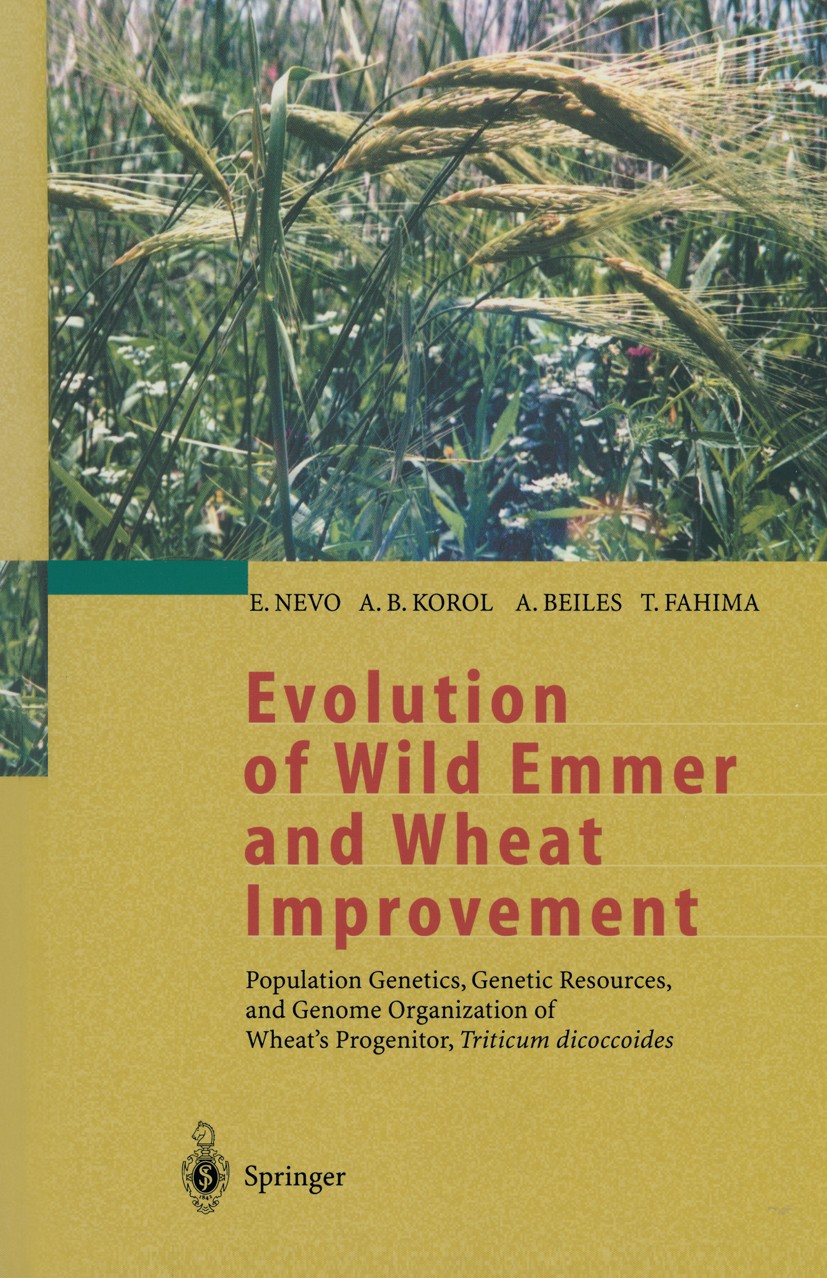| 书目名称 | Evolution of Wild Emmer and Wheat Improvement | | 副标题 | Population Genetics, | | 编辑 | Eviatar Nevo,Abraham B. Korol,Tzion Fahima | | 视频video | http://file.papertrans.cn/318/317770/317770.mp4 | | 概述 | The complete book on the wild progenitor of most cultivated wheats.Includes supplementary material: | | 图书封面 |  | | 描述 | This book is about the contribution to evolutionary theory and agricultural technology of one of humankind‘s most dramatic imitations of the evolu tionary process, namely crop domestication, as exemplified by the progenitor of wheat, Triticum dicoccoides. This species is a major model organism and it has been studied at the Institute of Evolution, University of Haifa, since 1979. The domestication by humans of wild plants to cultivated ones during the last ten millennia is one of the best demonstrations of evolution. It is a process that has been condensed in time and advanced by artificial rather than natural selection. Plant and animal domestication revolutionized human cultural evolution and is the major factor underlying human civilization. A post-Pleistocene global rise in temperature following the ice age, i.e., climatic-environmental factors, may have induced the expansion of econom ically important thermophilous plants and in turn promoted complex forag ing and plant cultivation. The shift from foraging to steady production led to an incipient agriculture varying in time in various part of the world. In the Levant, agriculture developed out of an intensive specialized ex | | 出版日期 | Book 2002 | | 关键词 | Evolution; cereals; crop improvement; evolutionary biology; genetic mapping; genetic resources; genetics; g | | 版次 | 1 | | doi | https://doi.org/10.1007/978-3-662-07140-3 | | isbn_softcover | 978-3-642-07512-4 | | isbn_ebook | 978-3-662-07140-3 | | copyright | Springer-Verlag Berlin Heidelberg 2002 |
The information of publication is updating

|
|
 |Archiver|手机版|小黑屋|
派博传思国际
( 京公网安备110108008328)
GMT+8, 2026-1-1 10:20
|Archiver|手机版|小黑屋|
派博传思国际
( 京公网安备110108008328)
GMT+8, 2026-1-1 10:20


